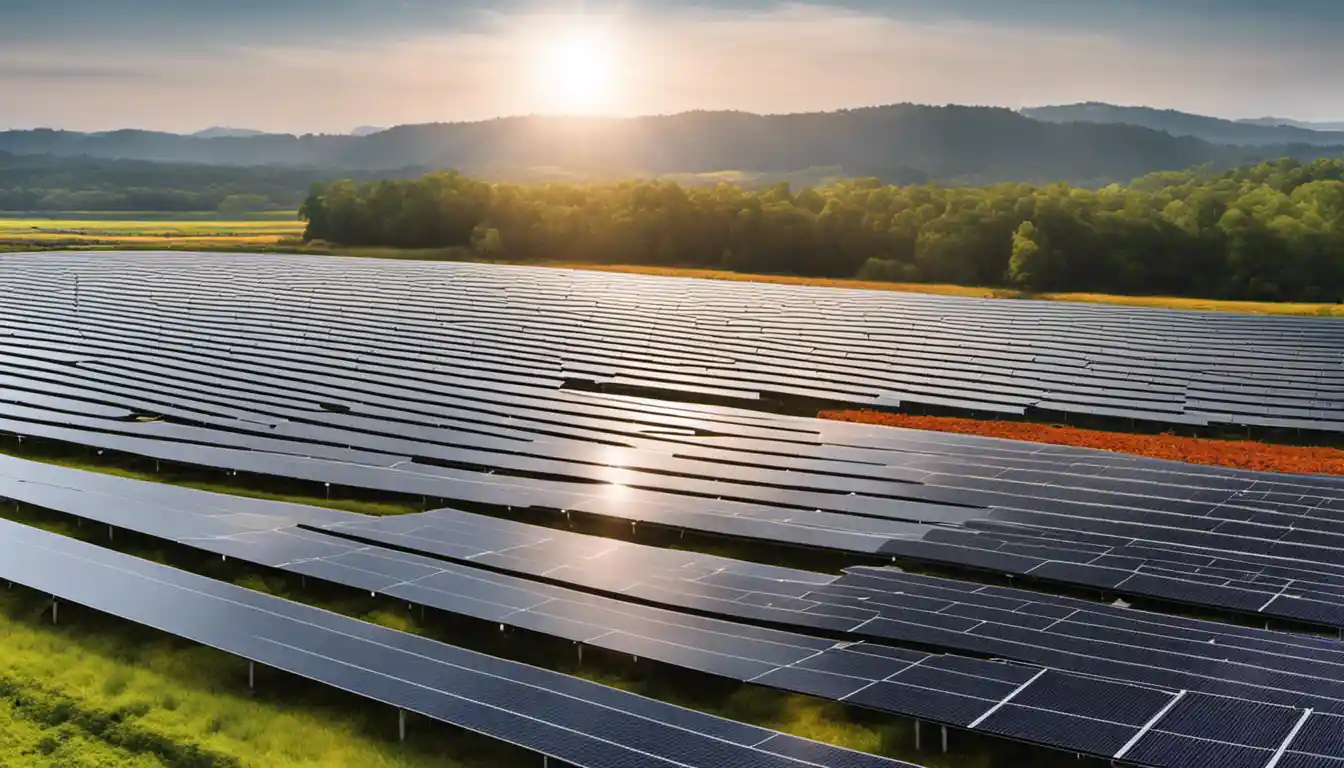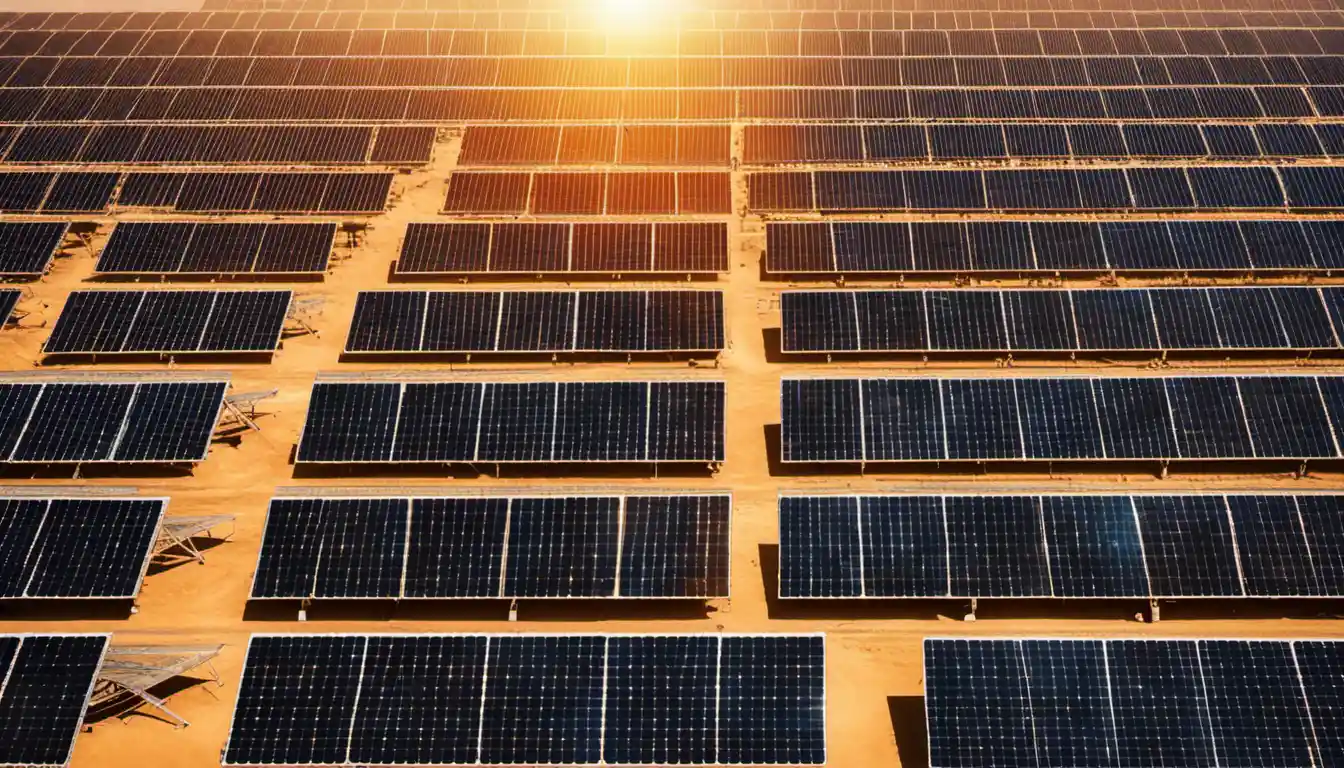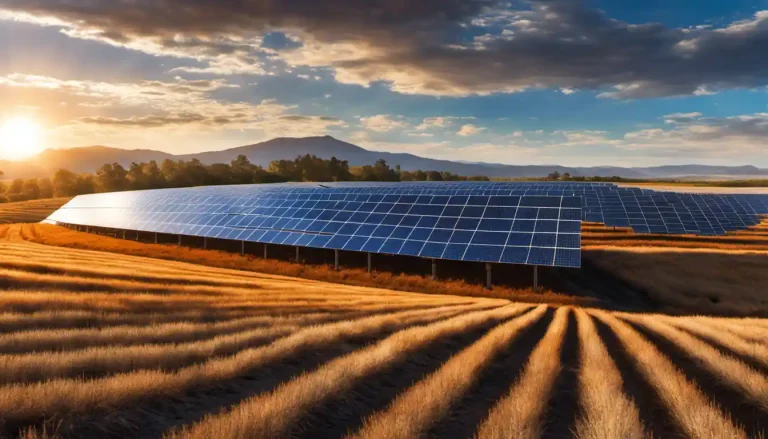Understanding Different Energy Sources
Solar energy is quite efficient as it comes from a renewable, inexhaustible source: the sun. While the efficiency of solar panels, which is about 15-20%, may seem lower compared to some nonrenewable sources like fossil fuels, the overall environmental efficiency – in terms of emissions and impact – is significantly higher. It is also increasingly becoming more cost-effective with technological advancements.
Fossil fuels comprise coal, natural gas, and oil – all derived from prehistoric plant and animal remains. Mining and refining them yields a significant amount of energy. However, they are nonrenewable and their extraction significantly contributes to greenhouse emissions.
Meanwhile, other renewable energy sources include wind, hydro, and biomass. These sources leverage natural elements like wind, water, and organic matter to generate electricity. They’re all pivotal players in our diversified energy landscape.
Solar Energy Vs. Fossil Fuels
When we conduct an efficiency comparison between solar versus fossil fuels, we need to look beyond just energy conversion rates. Fossil fuels, for instance, convert around 30-50% of the energy trapped within into electrical power. In contrast, solar panels usually turn about 15-20% of sunlight into electricity – a conversion rate that’s expected to rise with the development of photovoltaic technology.
In contrast to fossil fuels, solar energy doesn’t entail wide-ranging costs – environmental or economic, from extraction, transportation, or pollution. The sum of these factors makes solar power tremendously effective relative to fossil fuels.
When we look at the cost comparison: solar vs fossil fuels, initial setup costs of solar energy infrastructure can be higher. However, thanks to advances in technology and alternative options for solar panel installation, the long-term cost of solar energy can be much lower.
Solar Energy Vs. Other Energy Sources

Exploring “solar power vs other energy sources” offers an enlightening perspective. Compared to wind power, one advantage of solar is its relative ease of setup and versatility of installation – rooftops, large-scale solar farms, or small panels for individual gadget charging. Furthermore, solar doesn’t affect local ecosystems like wind turbines occasionally do.
Hydro-power commands a higher efficiency rate (up to 90%) compared to solar. However, dams drastically impact local ecosystems, and their construction and repair are expensive. Unlike hydro, solar power’s impact on the environment is virtually non-existent post-panel manufacture and installation.
A comparison with biomass reveals biomass’s lower efficiency, around 20%, and its potential for pollution. Biomass incineration could release harmful emissions, a problem that solar energy doesn’t have.
The Strengths and Weaknesses of Solar Energy
The question ‘why is solar energy the best energy source’ can yield numerous answers, and these provide an understanding of the pros of solar energy. Top reasons are its sustainability, decreased dependence on foreign and domestic energy sources, and the continued technological advancements that increase efficiency and lower costs. In addition, unlike other energy sources, solar energy doesn’t produce harmful emissions during operation, eliminating the long term cost of carbon footprints.
Among the cons of solar energy are the initial installation costs and the sunlight-dependency of solar panels. These limitations, however, are being addressed through innovative financing and storage solutions.
The Strengths and Weaknesses of Fossil Fuels

Fossil fuels constitute around 80% of the world’s power, and this dominance is attributed to their high energy output and well-established infrastructure. Nonetheless, negatives include operational emissions, impact on ecosystems during extraction, and the volatile prices inherent to a supply-demand market.
The Costs: Solar Energy and Other Energy Sources
The cost of solar energy compared to other energy sources has been decreasing steadily. Solar energy’s costs are calculated in terms of the installation price and not the cost of fuel. Wind and hydropower have similar economies.
The cost of fossil fuels, while initially cheap, can fluctify based on availability, extraction costs, and environmental regulations. In contrast, once a solar power system is installed, the energy generated is virtually free.
Why Solar Energy Reigns Supreme

I am often asked, ‘why is solar energy the best energy source?’ As a solar energy expert, I find sustainability, decreasing costs, technological advancements, and the reduced environmental impact to be compelling selling points.
Solar energy is a viable and sustainable solution that can meet our global energy needs. Unlike fossil fuels, solar energy won’t go extinct. We won’t face a sunshine shortage as long as the sun keeps rising! Its potential is virtually untapped and globally accessible.
Lastly, over time, solar power provides long-term economic advantages. While the initial investment might be high, the system will pay for itself due to significantly reduced, if not entirely eliminated, energy costs.
Conclusion: Re-evaluating Our Energy Choices
We’re standing at a crossroads. The answer to ‘how efficient is solar energy compared to others?’ is multifaceted. Efficiency, as it turns out, is not merely a matter of conversion rates. It’s also about considering costs—both financial and environmental—and the longevity of the energy source.
Solar energy, while not perfect, offers a viable alternative. It’s now up to us to harness it intelligently, striving toward a cleaner and more sustainable world. As I continue to study and advocate for solar energy, I am convinced that solar energy isn’t just part of a ‘greener’ future—it is the future.



